Join us in conversation with a panel of artists, activists, scholars and writers to launch the ground-breaking book Citizens of Photography: The Camera and the Political Imagination. This exciting volume brings together the work of The PhotoDemos Collective who through in-depth ethnographic investigation trace the resonances between political and photographic representation in Nicaragua, Nigeria, Greece, India, Nepal, Sri Lanka, Bangladesh and Cambodia.
In this discussion, we explore how the authors emphasize photography as lived practice and how photography’s performative, transformative, and transgressive possibilities facilitate the articulation of new identities across time, space and place. They analyse photographies ranging from family albums and social media to state and public archives, showing how they point to new destinations in the context of social movements, the aftermath of atrocity and civil war, and the legacies of past injustices.
The panel speakers draw on their own practice and experiences to reflect on the central themes that the volume highlights. Autograph as a hub for diasporic and transnational image worlds provides a platform to focus on the relevance of these discussions to all contemporary communities. Citizens of Photography by foregrounding photography’s open-ended and contingent nature and its ability to subvert and reconfigure conventional political identifications, demonstrates that as much as photography looks to the past, it points to the future, acting in advance of social reality.
PhotoDemos Collective are Christopher Pinney, Naluwembe Binaisa, Vindhya Buthpitiya, Konstantinos Kalantzis, Ileana L Selejan, Sokphea Young.
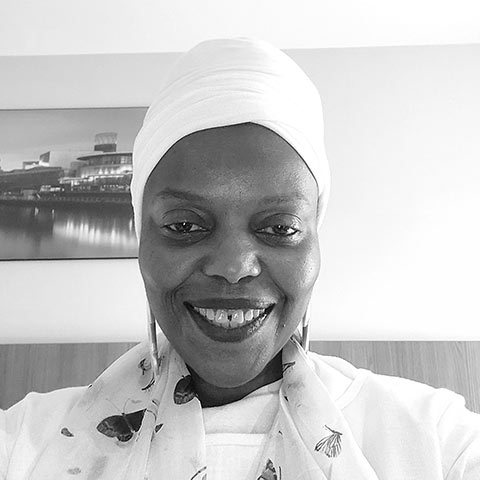
Naluwembe Binaisa researched photography in Nigeria for PhotoDemos. She is an interdisciplinary scholar and creative practitioner whose work seeks to understand the intersections of mobilities, belonging and citizenship within Africa and the diaspora.
Her recent work has focused on urban Africa through the lens of photography and digital technologies within gender and generational dynamics. Naluwembe is committed to practice and research that centres ways of seeing and being in the world from a global majority perspective. Naluwembe’s work has been published in international peer-reviewed journals as well as shared through exhibitions and community participatory events. Her research experience includes the Democratic Republic of Congo, Kenya, Nigeria, Uganda and the wider Black diaspora.
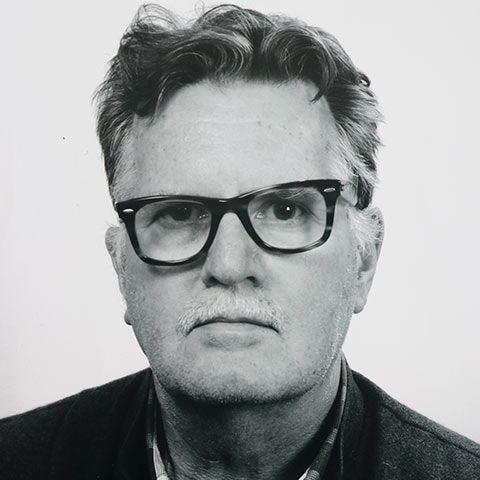
Christopher Pinney researched photography in Nepal, India, and Bangladesh for PhotoDemos. He is Professor of Anthropology and Visual Culture at University College London. His research interests centre on the art and visual culture of South Asia, with a particular focus on the history of photography and chromolithography in India.
His publications include Camera Indica (1997), Photos of the Gods (2004), The Coming of Photography in India (2008), Photography and Anthropology (2011), and The Waterless Sea (2018). He was Principal Investigator on the European Research Council Advanced Grant ‘PhotoDemos’.
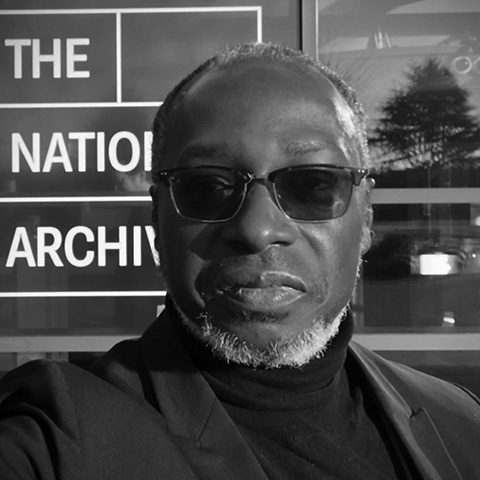
Nze Emeka Ed Keazor is a lawyer, archivist, historian, and filmmaker. His focus being the research of and a new retelling of Nigerian and African history. He is the author of the following critically acclaimed works: The Lagos Hamburg Line: A Brief History of German Commerce in Nigeria (1590 -2016); ‘120 Great Nigerians We Never Knew’, 'The Federation Cup and Nigerian Football'; amongst over 100 publications and research papers. His documentary film works include the award-winning 'January 15, 1970: Untold Memories of the Nigeria - Biafra War’; also nominated for best documentary at AMAA 2020)
He is a member of the Board of Trustees of the Nigerian Legal History Society; the board of directors of Iba Ajie (The Ukpabi Asika Knowledge Resource Centre), and Chairman of the board of directors of Piql (West Africa) Limited. He was consultant-historian for the official FGN Centenary Documentary: 'We are Nigerians', archival consultant to the critically acclaimed historical documentary series ‘Journey of an African Colony’; Associate Director and Chief Researcher on the Showmax original series: ‘Journey of the beats.
His recognitions include awards from the African Society of Cambridge University in 2014, for his work in African History; The Nigerian Legal History Society for contributions to Nigerian Legal History (2018). He was listed in the Guardian Nigeria list of 60 persons of impact in Nigeria’s 60 year history. His museum curatorial works include: The First Bank Museum; The TotalEnergies Museum and the Iba Ajie Ethnological Museum He is an Associate Fellow of the Royal Historical Society; a Fellow of the Royal Society for the Arts; member of the Nigerian Bar Association and a member of the Chartered Governance Institute of Canada (formerly ICSA-Canada).
@seal_60team on X (formerly Twitter).
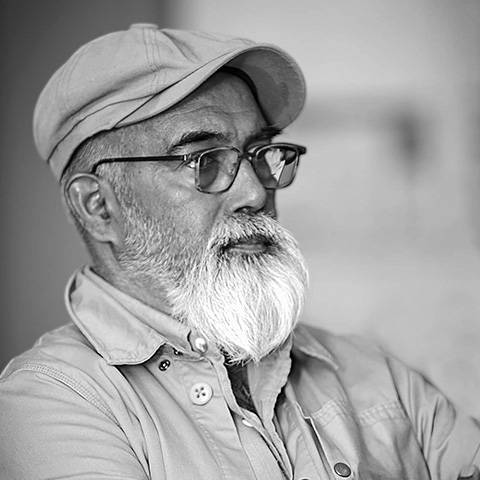
Sabes Sugunasabesan is a photographer and artist living in England. He migrated from Sri Lanka over four decades ago. His art explores where he is from and where he is. Land, its influences on life and dispossessions are his subject matters. His works and the making of them help reflect on place, memory, empathy and solidarity.
He has exhibited his bodies of works ‘Last Walk to the Beach’; his response to the brutal civil war in Sri Lanka that ended in 2009 as he experienced from the distance of time and space, 'Cruise America' a critical examination of touring through Native American territories and the USA. His recent work exploring his relationship to St Albans as an outsider was part of a group show at St Albans Museum Gallery. Sabes has exhibited in London and Toronto.
@sabessuguna on Instagram
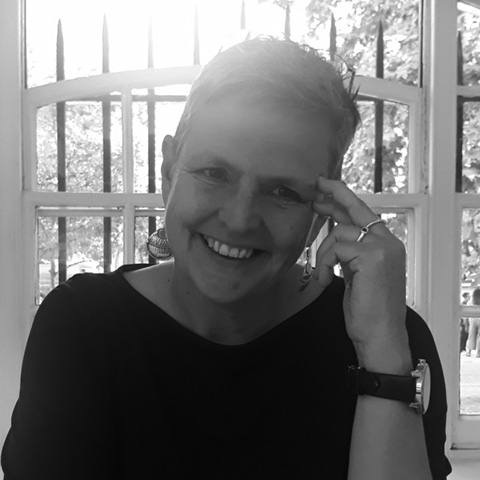
Helen Dixon (she or they) is a British Nicaraguan queer feminist writer, activist, translator and academic. Helen lived in Nicaragua from the 1980s, moving to the UK with daughter in 2011. She is a co-founder of the banned feminist popular education and communications collective Grupo Venancia, co-creator of the Guanuca Cultural Centre and member of the Nicaraguan feminist movement.
Helen’s visual art work in Nicaragua includes performance, street art and photography exhibitions with las artas, the estrago collective and la franja feminist. While still in Nicaragua they held a solo exhibition QEPD (RIP) in three cities and were commissioned by the Cultural Branch of AECID (Spanish Cooperation for Development) to cover Nicaragua’s photographic contribution to the project Tutti Frutti, on popular graphic sign-painting. They have two bilingual poetry books and currently are working on a creative and critical PhD called a “poetic fictional archive” involving Nicaragua’s current crisis, the UK’s colonial history and decolonising feminist perspectives on memory-imaginary.
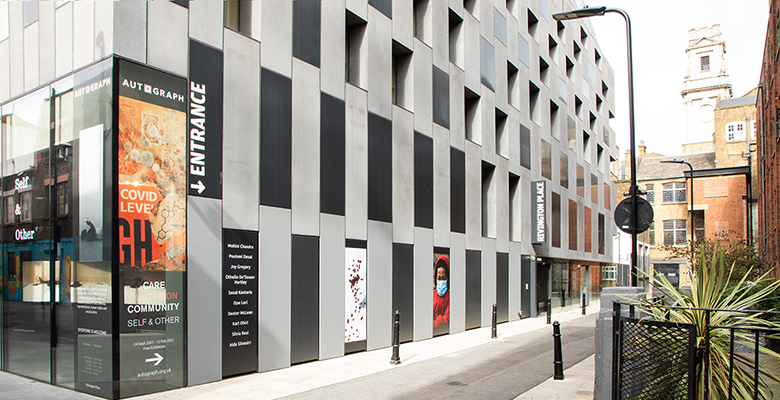
Everyone is welcome at Autograph. Planning a visit? Have a look at our Visit Us page to find out more about getting to the gallery, accessibility and more.
Banner image: Colourized studio photograph of author’s great grandparents, c.1930s Phnom Penh, Cambodia during the French colonial period, ‘upgraded’ from black and white in order to reprint and share with relatives (years after the subjects in the image had passed away). Re-photographed by Sokphea Young, 2018.
Images on the page: 1) Courtesy of Naluwembe Binaisa. 2) Courtesy of Christopher Pinney. 3) Courtesy of Nze Emeka Ed Keazor. 4) Courtesy of Helen Dixon. 5) Courtesy of Sabes Sugunasabesan. 6) Autograph, photograph by Zoë Maxwell.
Autograph is a space to see things differently. Since 1988, we have championed photography that explores issues of race, identity, representation, human rights and social justice, sharing how photographs reflect lived experiences and shape our understanding of ourselves and others.